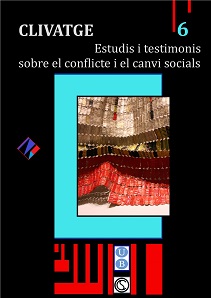Alternative Currencies and Democratic Conflict: Some Reflections
DOI:
https://doi.org/10.1344/CLIVATGE2018.6.2Keywords:
cryptocurrencies, local currencies, democracy, globalization, international monetary systemAbstract
Since the crisis of the Gold Standard in the 1930s and up to the Argentinean ‘Corralito’, at the beginning of the 21st century, periods of crisis have historically spurred numerous academic and political debates on the international monetary system. At the same time, in recent years, the Great Recession has once more stimulated the debates concerning national autonomy and democracy vs. globalization and the ideological issues surrounding them.
The particular phenomenon we analyze in this article is the current momentum gained by the so-called alternative currencies; more in particular, we deal with the previously undetected connections of these alternative currencies with both of these debates.
First of all, the article presents a theoretical framework of monetary economics in order to comprehend the basics of the monetary and payment systems. Secondly, it analyses the macroeconomics of both local complementary currencies (CCs) and cryptocurrencies according to this framework. Finally, it unveils the political-economical implications of such currencies and, more specifically, the implications of alternative currencies with regard to the weakening or the enhancement of national democratic systems.
Downloads
Published
How to Cite
Issue
Section
License
AUTHORS RETAIN COPYRIGHT. CREATIVE COMMONS
The authors who publish in this journal agree to the following terms
- The authors retain the copyright and grant the journal the right of first publication of the work, which will be disseminated following the Creative Commons Attribution license.
- Authors are free to establish additional independent contractual agreements for the non-exclusive distribution of the version of the work published in the journal (such as publication in an institutional or thematic repository, their personal website or a book), provided have your initial publication in this journal recognized.
- Texts will be published under a Creative Commons Attribution License that allows others to share the work, provided they include an acknowledgement of the work’s authorship, its initial publication in this journal and the terms of the license.
- Self-archiving of pre-print and post-print versions is allowed.







